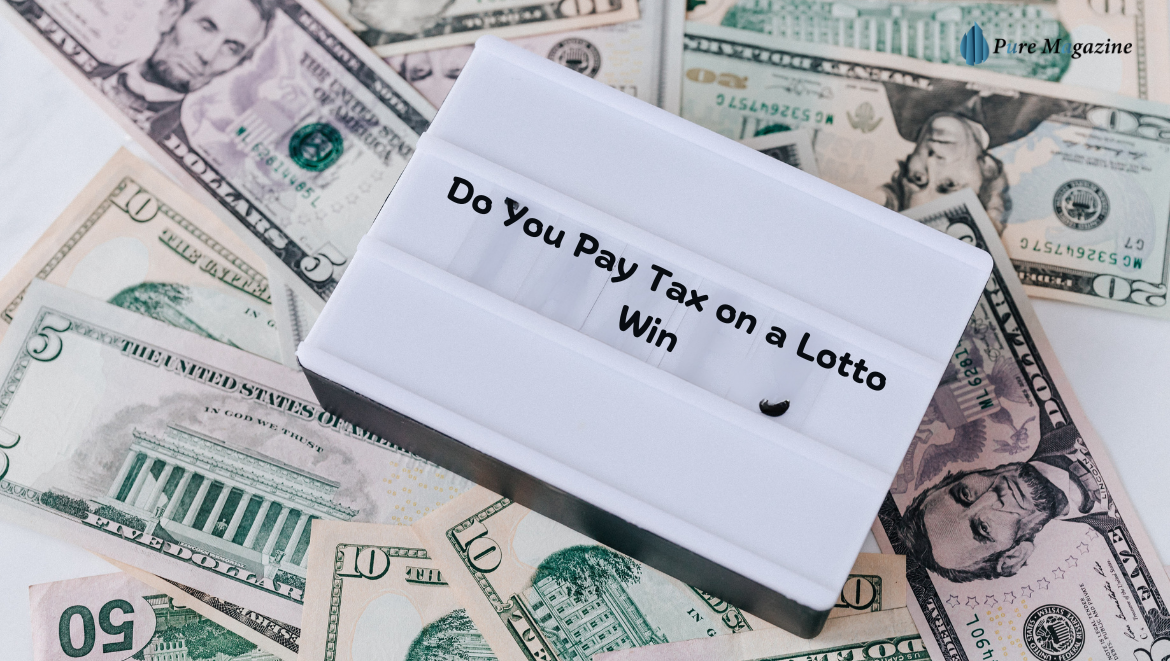You’ve just scratched off your ticket or checked the EuroMillions numbers, and your jaw drops. Jackpot. Suddenly, visions of a dream house, exotic holidays, or finally paying off every bill start dancing in your head. But then reality creeps in: do you pay tax on a lotto win? How much of this money will actually be yours to keep?
It’s a question every UK winner wonders about, and the internet is full of half-truths. The truth? UK lottery winnings are simpler than many think—but there’s still more to consider if you want your windfall to last.
Your Lottery Jackpot Is Likely Tax-Free
Here’s the first relief: whether it’s the National Lottery, EuroMillions, Set For Life, or even scratch cards, your winnings are tax-free in the UK. The amount advertised is the amount you receive: no hidden fees, no HMRC deductions, no surprises.
Sounds perfect, right? But let’s be honest—while the jackpot itself is untouched, what you do with the money afterward can change things. Deposit it in a high-interest savings account, and suddenly, that extra cash your money earns becomes taxable. The jackpot is safe, but its “offspring” isn’t.
So while you don’t pay tax on the prize itself, how you manage your money can make a big difference.
Where Taxes Might Sneak In
Even in the UK, life with a sudden windfall has a few rules:
- If your money sits in an account earning interest, HMRC wants a share of that interest.
- Gifting money to friends or family is thoughtful—but large gifts could impact inheritance tax if you die within seven years.
- Your estate might include your winnings. If your total estate exceeds £325,000, inheritance tax may apply.
Picture this: you give your sibling £50,000 as a token of appreciation for years of support. It feels generous, but if you’re not careful, that gift might influence the taxes your estate owes. Planning and knowing the rules keep your generosity from backfiring.
Lump Sum or Annuity? Choosing Wisely
UK lotteries let winners pick between a lump sum payout or an annuity. Each has pros and cons.
- Lump Sum: Immediate access to your winnings. Tempting for big purchases or investments, but any growth from your investments could be taxable.
- Annuity: Payments over time. This approach spreads your wealth, helping you manage it responsibly without risking overspending.
Think of it like this: £1 million upfront could grow into much more—but you’ll need to understand taxes on the interest. £5,000 monthly might feel slower, but it’s steady, predictable, and easier to manage.
The choice isn’t just about money—it’s about your lifestyle, your habits, and your comfort with handling large sums.
Protecting Your Windfall
Even if the jackpot itself isn’t taxed, there are ways to make sure it doesn’t disappear quickly:
- Invest smartly: ISAs and other tax-efficient accounts help your money grow without extra taxes.
- Plan gifts carefully: Use allowances and trusts to avoid unintended tax issues.
- Talk to an expert: A financial advisor can guide you in investments, tax planning, and protecting your wealth long-term.
With smart moves, you can enjoy your winnings without worrying about unexpected bills or mistakes that could cost thousands.
International Lotteries? Know the Rules
If you play foreign lotteries like the US Powerball, things get trickier. Non-US residents could face up to 30% federal withholding, plus state taxes. Winning $10 million in the US doesn’t guarantee that all of it reaches your UK bank account.
Before chasing international jackpots, understanding the rules could save you from a nasty surprise.
Debunking Common Myths
Don’t let misinformation ruin your win:
- “I’ll pay 40% tax on my winnings.” Not in the UK. Your lottery prize is tax-free.
- “Gifting money is automatically taxed.” Gifts within HMRC limits or via trusts are safe.
- “Scratch card winnings are taxed.” False—they’re treated like any other lottery prize.
Knowing the truth means you can focus on enjoying your winnings rather than stressing over taxes.
FAQs
Q1. Do I pay tax on EuroMillions or National Lottery winnings in the UK?
No. Whether you win the EuroMillions, National Lottery, Set For Life, or scratch cards, your lottery winnings in the UK are completely tax-free. You receive the full advertised prize with no income tax deductions.
Q2. Can I share my lottery winnings with family without paying tax?
Yes, you can gift money to family members safely if you stay within HMRC’s gift allowances. Keep in mind that large gifts could be subject to inheritance tax if you pass away within seven years, so planning is key to avoiding unexpected tax liabilities.
Q3. Are scratch card prizes taxed in the UK?
No. Scratch card winnings are treated the same as any other lottery prize and are not subject to income tax. You receive your full winnings directly, tax-free.
Q4. Will I pay tax if I invest my lottery winnings?
Any money generated from your winnings—such as interest, dividends, or capital gains—may be taxable. Using tax-efficient accounts like ISAs or other investment vehicles can reduce exposure and help your money grow without unnecessary tax.
Q5. Do lottery winnings count toward inheritance tax in the UK?
Yes. Lottery winnings become part of your estate, which may affect inheritance tax if your total estate exceeds £325,000. Proper estate planning can help minimise your inheritance tax liability and ensure your wealth is passed on efficiently.
Making Your Win Count
Winning the lottery is exciting, but it comes with responsibility. While the prize itself is tax-free, many winners ask, “do you pay tax on a lotto win?” The answer lies in what you do next—interest, investments, gifts, and estate planning can all create tax obligations. Smart investing, thoughtful gifting, and professional guidance are key to turning your windfall into long-term security.
Winning isn’t just about the money—it’s about making it work for you and your loved ones, without unnecessary stress.
Visit: Pure Magazine








